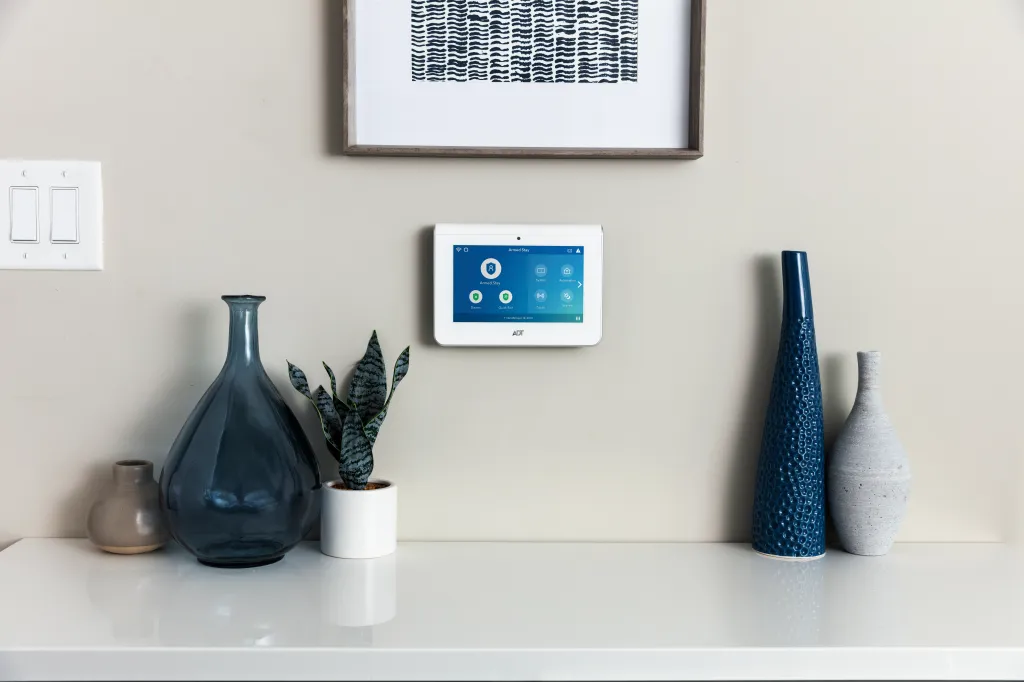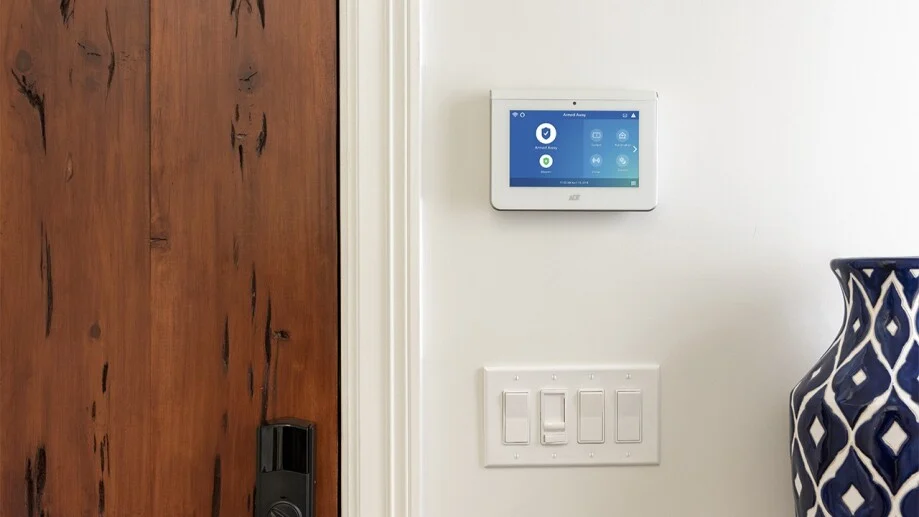Introduction to Home Security Systems
In an age where technology is rapidly evolving, home security systems have become an essential aspect of safeguarding properties. With the increasing prevalence of burglaries and home invasions, homeowners are seeking reliable solutions to protect their loved ones and belongings. Among the options available, wireless and wired security systems stand out as the two primary choices.
This article delves into the differences between wireless home security and wired home security systems, examining their safety features, installation processes, and overall effectiveness. The aim is to provide a comprehensive understanding to help homeowners make informed decisions regarding their security needs.
Wireless security systems offer a level of flexibility and convenience that appeals to many modern homeowners. These systems utilise radio signals to transmit data, making them easier to install and relocate as needed. This is particularly advantageous for renters who may not have the option to make permanent changes to their living space. Furthermore, advancements in technology have led to the development of sophisticated wireless systems that can integrate seamlessly with smart home devices, allowing users to control their security features remotely through mobile applications. This integration not only enhances security but also adds a layer of convenience, enabling homeowners to monitor their properties in real-time, regardless of their location.
On the other hand, wired security systems, while often more labour-intensive to install, provide a sense of reliability that many homeowners find reassuring. These systems are hardwired into the home’s electrical system, which can make them less susceptible to interference or hacking compared to their wireless counterparts. Additionally, wired systems typically require less maintenance, as they do not rely on batteries that may need to be replaced periodically. Many homeowners appreciate the peace of mind that comes with a robust wired system, particularly in areas where power outages are common, as these systems can often continue to function effectively even during such events. Ultimately, the choice between wireless and wired systems will depend on individual preferences, lifestyle, and specific security requirements.
Understanding Wireless Home Security Systems
Wireless home security systems use radio frequency signals to communicate between devices, such as cameras, sensors, and alarms. These systems have gained popularity due to their ease of installation and flexibility. Unlike wired systems, which require extensive cabling, wireless systems can be set up without the need for professional installation in many cases.
Advantages of Wireless Systems
One of the most significant advantages of wireless home security systems is their convenience. Homeowners can easily relocate devices without the constraints of wiring, making it simple to adapt the system as needed. Additionally, many wireless systems offer mobile app integration, allowing users to monitor their homes remotely.
Another notable benefit is the reduced installation time. Wireless systems can often be set up within a few hours, whereas wired systems may take days to install due to the necessary drilling and cabling. This makes wireless solutions particularly appealing for those looking for a quick and efficient security setup.
Potential Drawbacks of Wireless Systems
Despite their advantages, wireless systems are not without their drawbacks. One primary concern is the reliance on batteries. Many wireless devices require battery replacements, which can be inconvenient and may lead to vulnerabilities if not regularly maintained. Additionally, if the signal is obstructed by walls or other structures, it can result in connectivity issues.

Moreover, wireless systems can be susceptible to hacking. Cybersecurity threats are a growing concern, and if the system is not adequately secured, it may be vulnerable to unauthorised access. Homeowners must ensure that they use strong passwords and keep their systems updated to mitigate these risks.
Exploring Wired Home Security Systems
Wired home security systems are the traditional choice for many homeowners. These systems rely on physical cables to connect devices, providing a stable and reliable connection. While they may require more effort to install, they offer certain advantages that are worth considering.
Benefits of Wired Systems
One of the primary benefits of wired systems is their reliability. With a direct connection, wired systems are less likely to experience interference or connectivity issues, making them a dependable choice for homeowners. This stability is particularly important for critical components, such as alarms and surveillance cameras.
Furthermore, wired systems are generally more secure against hacking attempts. Since they do not rely on wireless signals, the risk of unauthorised access is significantly reduced. This can provide peace of mind for homeowners who prioritise security above all else.
Challenges Associated with Wired Systems
While wired systems offer reliability, they come with their own set of challenges. The installation process can be time-consuming and labour-intensive, often requiring professional assistance. This can lead to higher upfront costs, which may deter some homeowners from choosing this option.
Additionally, the inflexibility of wired systems can be a disadvantage. Once installed, it can be challenging to relocate devices without significant effort and expense. This lack of adaptability may not suit homeowners who wish to modify their security setups over time.
Comparing Safety Features
When evaluating the safety features of wireless and wired systems, it is essential to consider various factors, including alarm response times, monitoring capabilities, and the effectiveness of surveillance technology.
Alarm Response Times
Both wireless and wired systems can offer rapid alarm response times, but the reliability of the connection plays a crucial role. Wired systems tend to provide quicker response times due to their stable connections. In contrast, wireless systems may experience delays if there are connectivity issues, potentially compromising safety.
However, many modern wireless systems have improved their response times significantly, utilising advanced technology to minimise delays. Homeowners should research specific products to understand their performance in this area.
Monitoring Capabilities
Monitoring capabilities are another critical aspect to consider. Many wireless systems offer 24/7 monitoring through mobile apps, allowing homeowners to receive real-time alerts and updates. This feature can enhance safety by enabling immediate action in case of an emergency.
Wired systems also offer monitoring options, but they may not provide the same level of convenience as their wireless counterparts. Homeowners should weigh the importance of remote monitoring when deciding between the two systems.
Cost Considerations
Cost is a significant factor for many homeowners when choosing a security system. The initial investment, ongoing maintenance, and potential upgrades should all be taken into account when evaluating the overall cost of wireless versus wired systems.
Initial Investment
Generally, wireless systems have a lower initial investment due to their simplified installation process. Homeowners can often purchase a complete wireless security kit and set it up themselves, reducing labour costs. In contrast, wired systems typically require professional installation, which can increase the overall cost.
However, it is essential to consider the long-term costs associated with both systems. Wireless systems may incur additional expenses for battery replacements and potential upgrades, while wired systems may require less frequent maintenance.
Long-term Maintenance Costs
Long-term maintenance costs can vary significantly between wireless and wired systems. Wireless systems may require ongoing expenses for battery replacements and software updates, while wired systems often have lower maintenance needs. Homeowners should evaluate their willingness to manage these ongoing costs when making their decision.
Making the Right Choice for Your Home
Choosing between a wireless and wired home security system ultimately depends on individual needs and preferences. Factors such as budget, installation preferences, and the desired level of security should all be considered when making this decision.

Assessing Your Security Needs
Before making a choice, homeowners should assess their specific security needs. Consider the size of the property, the number of entry points, and any previous security incidents. Understanding these factors can help determine which type of system may be more suitable.
Additionally, evaluating the lifestyle and habits of the household can provide insight into the best security solution. For instance, homeowners who travel frequently may benefit from the remote monitoring capabilities of wireless systems.
Consulting with Professionals
For those who remain uncertain, consulting with security professionals can provide valuable insights. Experts can assess the property, recommend suitable systems, and offer installation services if needed. This guidance can help ensure that homeowners make informed decisions tailored to their unique circumstances.
Conclusion
In conclusion, both wireless and wired home security systems have their advantages and disadvantages. Wireless systems offer convenience and flexibility, while wired systems provide reliability and enhanced security against hacking. Ultimately, the choice between the two should be based on individual needs, budget, and preferences.
As technology continues to evolve, so too will home security solutions. Homeowners must stay informed about the latest advancements to ensure their properties remain safe and secure. By carefully considering the options available, individuals can make the best choice for their home security needs.
Related article: Security Systems for Home: Features You Should Never Overlook